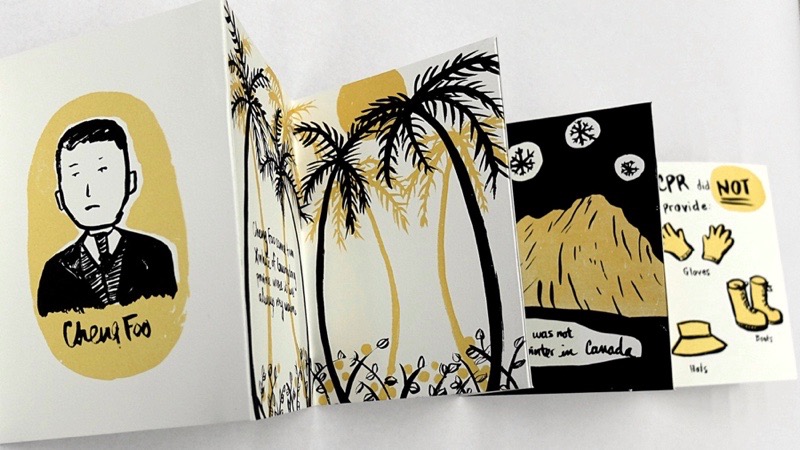Collected Data
Marlene Yuen: After Gold Mountain

Join us for our Spring/Summer exhibition After Gold Mountain: Selected Stories of Chinese Labourers in Canada by Vancouver-based printmaker and book artist, Marlene Yuen.
Please join us for the public opening reception of After Gold Mountain on Friday, May 12th from 7-10 pm. Marlene Yuen will be in attendance.
Marlene Yuen: After Gold Mountain
"So every month I’m going to be giving one of my six ebooks away!"
I launched NMK by giving away free ebook versions Angry Young Spaceman. Pre-Kindle and iPhone, people found it baffling. But the gift economy works — it's come back to me in a lot of ways.
No Media Kings Launched 15 Years Ago
Read: "Pesky brats, adventurous ducks, and jiving swamp critters"
We never need an excuse to write about comic strips or comic books. We’re fans and, just as important, we think of them as having important connections to film. We’re particularly fond of classic funny-animal comics, from Krazy Kat (the greatest) onward. So I got a double dose of pleasure reading Mike Barrier’s Funnybooks: The Improbable Glories of the Best American Comic Books. It taught me a lot about the history of some favorites, and it set me thinking about some overlaps and divergences between film and graphic art.
Pesky brats, adventurous ducks, and jiving swamp critters
R.I.P. Tatsumi Yoshihiro, 1935-2015
Tatsumi is famous as the artist who helped fashion a new style of manga known as “gekiga” (dramatic pictures), a term he coined in 1957. He played a major role in broadening the possibilities of the medium to accommodate mature-reader genres like mystery, action, and horror, oftentimes in 100-plus-page, single-story books that predate the advent of the “graphic novel” by many decades. Though there was hardly a genre Tatsumi didn’t try his hand at, he is best known for the stories he created in the late ’60s and early ’70s about the bleak lives and perversions of aging white-collar and low-level blue-collar workers.
Tatsumi Yoshihiro, 1935-2015
movies4machines